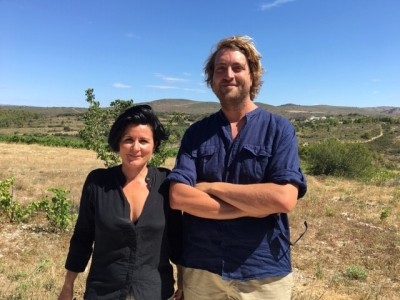How collaborative urban farming allowed a French winemaker to rethink its business model
This content item was originally published on www.foodnavigator.com, a William Reed online publication.
Urban farming and agro-ecology have the backing of the United Nation’s FAO to make our food system more responsible, resilient and to bring food and farming closer to consumers.
Aside from ingredient sourcing, however, is there a more hands-on way for food and drink manufacturers to get involved?
Located in Montpellier in the south of France, Chateau de Flaugergues is an urban vineyard that produces over 150,000 bottles of wine a year.
As of this year, it has made permaculture not only part of its Corporate Social Responsibility (CSR) programme but its business model.
It gave part of its land to Oasis Citadine, or City Oasis, an urban farming association in Montpellier and the exchanges between both are beneficial for everyone.
“First and foremost, it’s a collaborative permaculture farm,” explained Pierre de Colbert, owner and managing director of the Chateau de Flaugergues.
"The objective is to offer city dwellers a place where they can reconnect with nature and all the good farming practices that permaculture encompasses. It goes beyond the intensive agricultural model that has little regard for the environment. It has a consciously environmental approach and there is also a pedagogic element.
“We’ve seen natural exchanges on three different levels between the farm and the restaurant, Folia, which I founded with my wife in 2010.
“We can bring all the organic waste from the restaurant and compost it on the Oasis site. We realised that something that was a waste product for us – the organic matter from the potatoes, carrots and all the fruit and vegetables we use – is valuable. In return, we get a part of their production – aromatic herbs or vegetables. And you don’t get more local than that.
“The chef of Folia restaurant, Damien Fourvel, is also involved in the farm as an active member.
“This can be seen as part of the evolution of the corporate world of work. We have moved away from the traditional relationship of employer-employee or customer-supplier.
“We are creating an interface that works both ways. It’s really something that is very innovative and is a real virtue for us. We’ve left the purely capitalistic way of doing business.
Sebastien Giraud, founder and director of Oasis Citadine, said: “Permaculture is also a philosophy. How can we go towards something that is more sustainable? What’s really interesting with permaculture is this notion of creating an ecosystem that is sustainable and resilient.
“It’s a farm that allows people who live in the city to come and grow their own fruit and vegetables, get training in permaculture and discover gardening.
“It’s really important because today city-dwellers are disconnected from their food. They’re used to going to a supermarket and directly there so urban farming is a way of bringing the origin of food closer to the consumer.
“It rekindles connections with the plant and soil and is also a really good way of creating links between the town and countryside. Today, farming as a profession is not very well known. It’s remote from the lives of city folk and there are fewer and fewer farmers. So this is a way to reconnect people who live in the city with the countryside.
“This allows people who don’t have access to land or don’t have a garden to become actors in their food, biodiversity and the environment. To become actors in the ecological transition, in fact, and fight against global warming on a small scale with small actions.
“They come here and plant trees, create soil, grow food and create value in waste. It’s about allowing each individual become an actor in this transition and show them that, with different actions at every level, we can achieve beautiful things.
“We can provide realistic alternatives that already exist and put them into action right away.”
De Colbert said: “As the chateau owners, we decided to provide the land to Oasis CItadine and not rent it out. We don’t earn from this financially but benefit in terms of reputation and synergistic activities.
“With this kind of project, you can’t look to make money through property. You need to look elsewhere.
“I believe there is a world of possibilities for these kinds of synergies between an Oasis, permaculture and other business activities. For a business that is environmentally conscious but lacks concrete action to demonstrate its ambitions, Oasis CItadine is a way to go above and beyond.”







